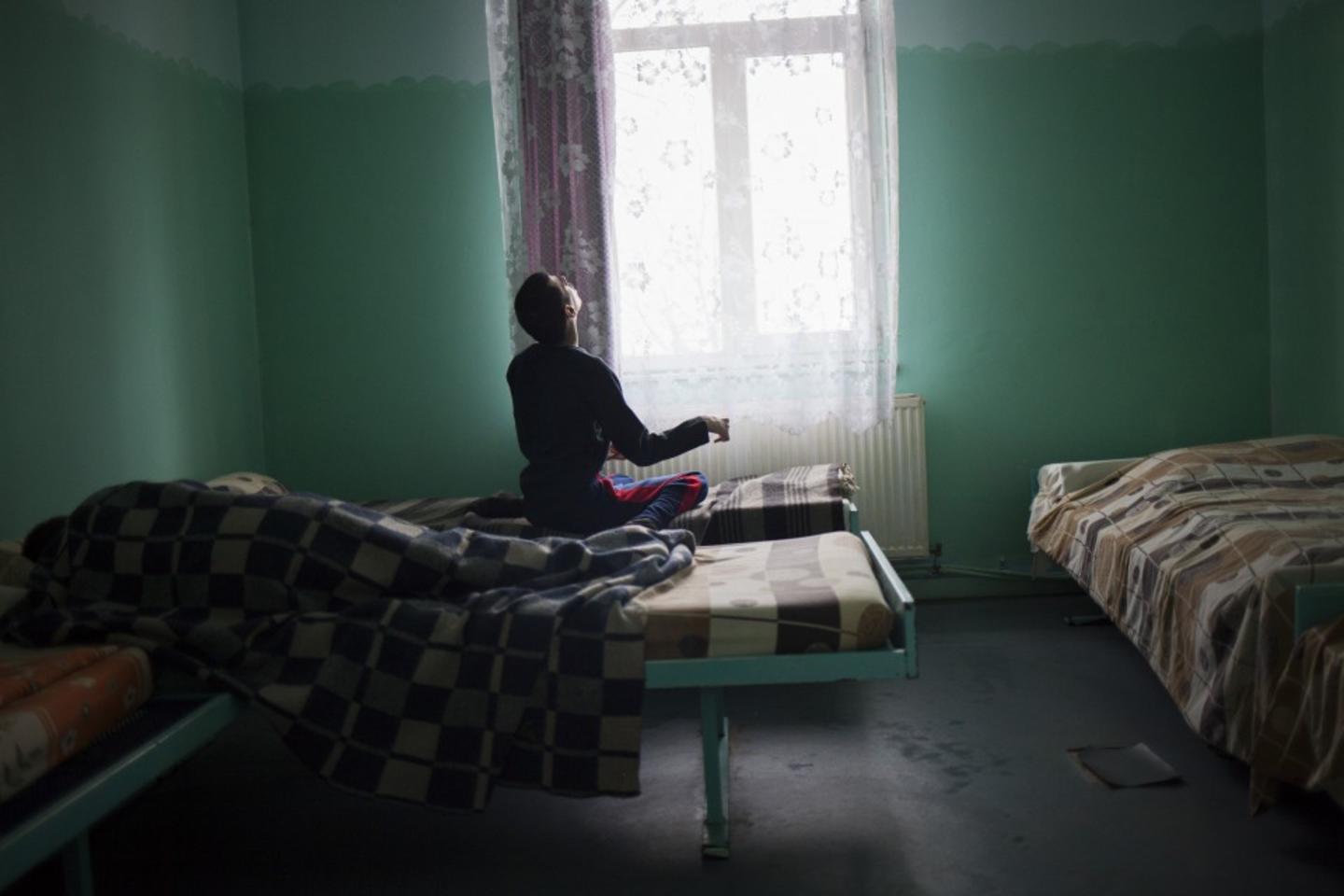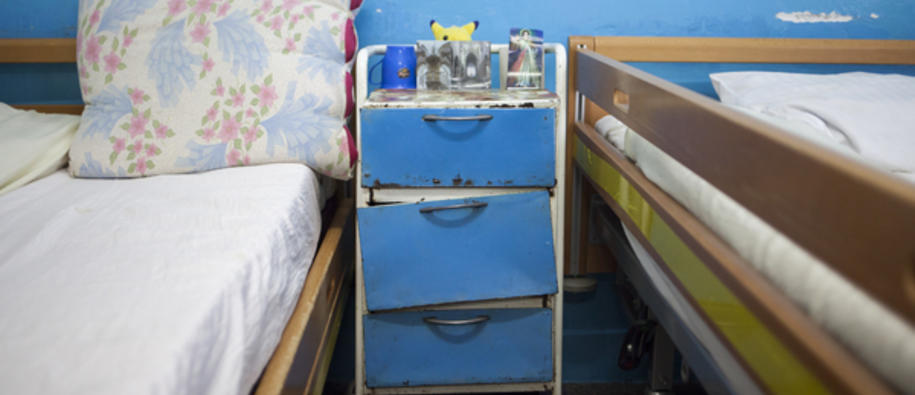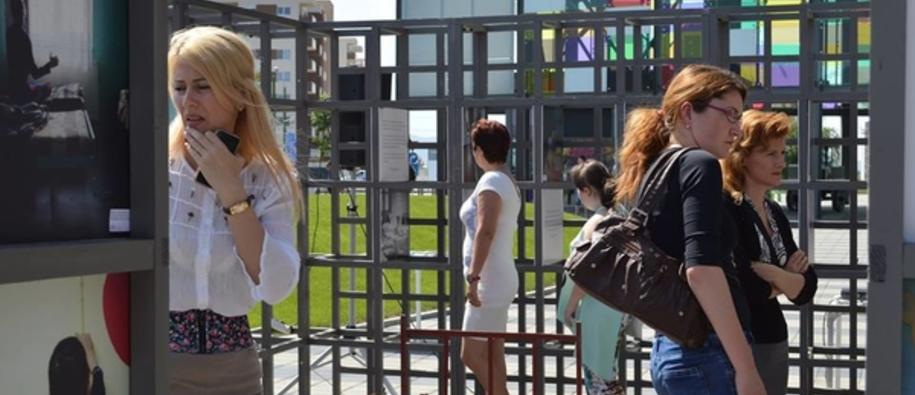Around 25 000 children and adults with mental health problems are in residential centres and psychiatry hospitals in Romania, consequently falling under the international legal definition of being ‘deprived of liberty.’ NGOs in Romania have raised concerns about the conditions some of these persons are subject to in some of the centres, among those is the Centre for Legal Resources:
“We have conducted unannounced visits in institutions for people with mental disabilities for over 12 years now and in these visits we have observed a lot of human rights abuses,” explains Cătălin Cumpănașu, Communications & PR Officer of the Centre for Legal Resources (CLR):
“This includes individuals being tied down to their beds or malnourished, as well as a suffering from a lack of basic care, denial of medical and psychological treatment, and inadequate integration and education services, amounting to inhuman and degrading treatment. Even more aggravating is that this has reportedly resulted in numerous deaths of patients left uninvestigated by the authorities – approximately 1 500 between 2011-2014 in about half of the country. For the other half we couldn’t obtain any statistics, so the number could be larger.”
National Preventive Mechanism
Despite having ratified the UN Convention on the Rights of Persons with Disabilities, Romania still has not fulfilled all of the requirements listed under the Convention:
“The visits we do should be conducted through a National Preventive Mechanism by an independent authority. This mechanism is required by the UN Convention, however the Romanian state has kept postponing to implement it,” says Cumpănașu.
In 2014, the European Court of Human Rights (ECHR) condemned Romania for a violation of Article 2 (right to life) in both its substantive and its procedural aspects, and a violation of Article 13 (right to an effective remedy) in conjunction with Article 2.
The case concerned the death of a young man of Roma origin in a psychiatric hospital, who was HIV positive and suffering from a severe mental disability. In 2004 Mr Valentin Câmpeanu was found by the CLR team during an unannounced visit just days before his death, at the age or 18. He was kept hidden, tied and locked in a storage room in the courtyard of the hospital in dire health conditions. After a long trial in the Romanian courts of law ruling against the CLR complaints, the case was brought to the Grand Chamber of ECHR in 2013 who, in 2014, ruled against the Romanian state and insisted upon the urgent need of a National Preventive Mechanism.
This is the first case accepted by ECHR where an NGO denounces the death of an individual with mental disabilities placed in the state’s care.
Advocating for action
With support from Iceland, Liechtenstein and Norway through the Romanian ‘NGO programme’, Cumpănașu and his colleagues are raising awareness about the conditions faced by the beneficiaries of these institutions, and advocating for the implementation of the national mechanism.
The need is dire and Cumpănașu explains that it’s not only a matter of preventing human rights violations but likewise to ensure that the residents are aware of their rights:
“These people often don’t know that they can complain, where to complain or are not technically capable of complaining. Additionally, their legal representative is often the director of the institution or another similar actor – essentially, the same authority that’s on the receiving end of the complaint.”
Unannounced visits
The Centre for Legal Resources has a protocol with the Ministry of Health and the Ministry of Labour, Family and Social Affairs of Romania which gives the organisation the right to make unannounced visits to the institutions in question. Together in teams of 3-4 people, including lawyers and psychologists, they visit the facilities and talk to both the beneficiaries and the personnel.
During these visits, the teams seek to sit down with the patients and speak with them privately about their experiences and needs. Occasionally, the team likewise receives useful information from staff members:
“We’ve found that when have discussions with the personnel separately from management, they are not so afraid to talk and will open up about the beneficiaries’ needs.”
Street Exhibition
During the visits supported through the project, the team was joined by two photographers, documenting everything that met their eyes. The beneficiaries who were visited also received one-use cameras to use as they wished. The team later printed their photos and created an exhibition together with the photographs from the professional photographers.
The team did not wish to create a simple exhibition with photos hanging on a wall. Instead, they created an installation with a wooden structure that resembles a cage. The cage is only open on one side, and the photos are placed from the sides so you have to make an effort, even crouch to actually see these photos:
“Our idea was to give an impression of the isolation and hard life that these people live. In addition to the cage, the centre of the installation has a stripped down wireframe of an iron bed as a symbol of one of the activities occupying the most of their time – just sitting in bed,” explains Cumpănașu.
Increasing awareness
By bringing the exhibition to several cities around Romania, the team wants to increase people’s awareness of the situation:
“These institutions are closed so people don’t know anything about them. This way people can find out about the problems through a powerful medium – which can also increase support for the law on the new mechanism,” says Cumpănașu.
A bill proposing the establishment of the mechanism is in the Romanian parliament. It has passed the Chamber of Deputies and now sits in the Senate:
“The parliament is currently in summer vacation so the bill will enter the final debate in autumn. We hope that it will pass and we will keep the campaign synchronised with the legislative process,” notes Cumpănașu.
As a part of the campaign, a petition was produced, as well as ten types of postcards with different pictures from the exhibition. The postcards contain texts addressed to presidents of each parliamentary chambers, advocating for the bill to be passed. “We invite people across the country to sign them to show their support,” says Cumpănașu, “we will then deliver them to the parliament during the closing event of the campaign.”
Visit the project's Facebook page
See more photographs from the project


